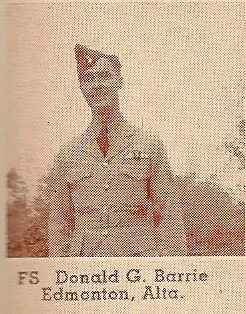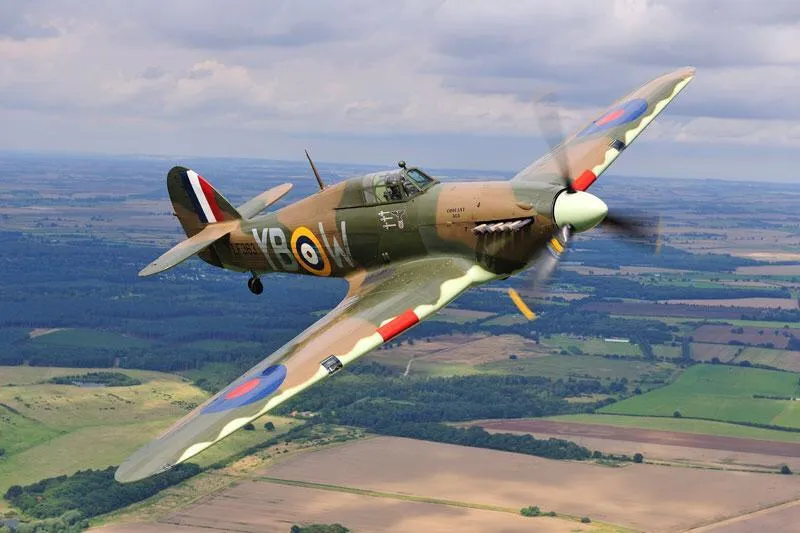Barrie, Donald Gladstone (Flight Sergeant)
Killed in Action 1942-May-31


Birth Date: 1921
Born:
Parents: Son of William C. and Elizabeth E. Barrie, of Edmonton, Alberta, Canada.
Spouse:
Home: Davidson, Saskatchewan
Enlistment:
Enlistment Date: unkown date
Service
RCAF
Unit
73 Sqn- Squadron (RAF)
Tutor Et Ultor Protector and Defender
Base
RAF Gambut, Libya
Rank
Flight Sergeant
Position
Pilot
Service Numbers
R/76597
Hurricane serial: BM988

Source BBMF
The Hawker Hurricane is a single-seat fighter aircraft of the 1930s"“1940s that was designed and predominantly built by Hawker Aircraft Ltd. for service with the Royal Air Force (RAF). The Hurricane developed through several versions, as bomber-interceptors, fighter-bombers, and ground support aircraft in addition to fighters. Versions designed for the Navy were popularly known as the Sea Hurricane, with modifications enabling their operation from ships. Some were converted to be used as catapult-launched convoy escorts. By the end of production in July 1944, 14,487 Hurricanes had been completed in Britain and Canada.
A major manufacturer of the Hurricane was Canadian Car and Foundry at their factory in Fort William (now Thunder Bay), Ontario. The facility's chief engineer, Elsie MacGill, became known as the "Queen of the Hurricanes". The initiative was commercially led rather than governmentally, but was endorsed by the British government; Hawker, having recognized that a major conflict was all but inevitable after the Munich Crisis of 1938, drew up preliminary plans to expand Hurricane production via a new factory in Canada. Under this plan, samples, pattern aircraft, and a complete set of design documents stored on microfilm, were shipped to Canada; the RCAF ordered 20 Hurricanes to equip one fighter squadron and two more were supplied to Canadian Car and Foundry as pattern aircraft but one probably did not arrive. The first Hurricane built at Canadian Car and Foundry was officially produced in February 1940. As a result, Canadian-built Hurricanes were shipped to Britain to participate in events such as the Battle of Britain. Canadian Car and Foundry (CCF) was responsible for the production of 1,451 Hurricanes. Wikipedia and Harold A Skaarup Web Page